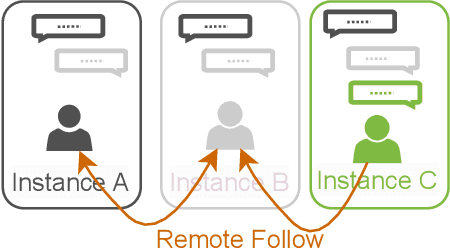Decentralised Moderation for Interoperable Social Networks: A Conversation-based Approach for Pleroma and the Fediverse
Paper and Code
Apr 03, 2024



The recent development of decentralised and interoperable social networks (such as the "fediverse") creates new challenges for content moderators. This is because millions of posts generated on one server can easily "spread" to another, even if the recipient server has very different moderation policies. An obvious solution would be to leverage moderation tools to automatically tag (and filter) posts that contravene moderation policies, e.g. related to toxic speech. Recent work has exploited the conversational context of a post to improve this automatic tagging, e.g. using the replies to a post to help classify if it contains toxic speech. This has shown particular potential in environments with large training sets that contain complete conversations. This, however, creates challenges in a decentralised context, as a single conversation may be fragmented across multiple servers. Thus, each server only has a partial view of an entire conversation because conversations are often federated across servers in a non-synchronized fashion. To address this, we propose a decentralised conversation-aware content moderation approach suitable for the fediverse. Our approach employs a graph deep learning model (GraphNLI) trained locally on each server. The model exploits local data to train a model that combines post and conversational information captured through random walks to detect toxicity. We evaluate our approach with data from Pleroma, a major decentralised and interoperable micro-blogging network containing 2 million conversations. Our model effectively detects toxicity on larger instances, exclusively trained using their local post information (0.8837 macro-F1). Our approach has considerable scope to improve moderation in decentralised and interoperable social networks such as Pleroma or Mastodon.
 Add to Chrome
Add to Chrome Add to Firefox
Add to Firefox Add to Edge
Add to Edge